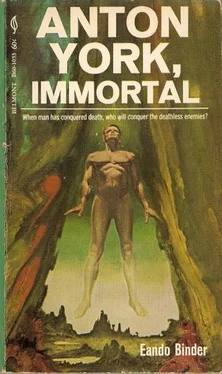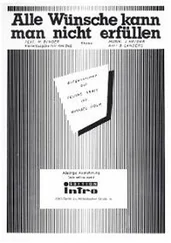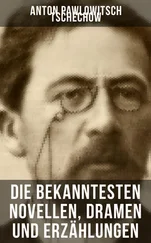Eando Binder - Anton York, Immortal
Здесь есть возможность читать онлайн «Eando Binder - Anton York, Immortal» весь текст электронной книги совершенно бесплатно (целиком полную версию без сокращений). В некоторых случаях можно слушать аудио, скачать через торрент в формате fb2 и присутствует краткое содержание. Год выпуска: 1965, Издательство: Belmont, Жанр: Фантастика и фэнтези, на английском языке. Описание произведения, (предисловие) а так же отзывы посетителей доступны на портале библиотеки ЛибКат.
- Название:Anton York, Immortal
- Автор:
- Издательство:Belmont
- Жанр:
- Год:1965
- ISBN:нет данных
- Рейтинг книги:5 / 5. Голосов: 1
-
Избранное:Добавить в избранное
- Отзывы:
-
Ваша оценка:
- 100
- 1
- 2
- 3
- 4
- 5
Anton York, Immortal: краткое содержание, описание и аннотация
Предлагаем к чтению аннотацию, описание, краткое содержание или предисловие (зависит от того, что написал сам автор книги «Anton York, Immortal»). Если вы не нашли необходимую информацию о книге — напишите в комментариях, мы постараемся отыскать её.
A science fiction classic!
Anton York, Immortal — читать онлайн бесплатно полную книгу (весь текст) целиком
Ниже представлен текст книги, разбитый по страницам. Система сохранения места последней прочитанной страницы, позволяет с удобством читать онлайн бесплатно книгу «Anton York, Immortal», без необходимости каждый раз заново искать на чём Вы остановились. Поставьте закладку, и сможете в любой момент перейти на страницу, на которой закончили чтение.
Интервал:
Закладка:
Of the Immortals, only Mason Chard was left. He had been left in charge of their secret underground headquarters in Tibet and had thus escaped York’s vengeance. For, years he had remained in hiding, waiting until Anton York had left the Solar System, plunging out amid the stars like a god whose duties were done. Chard, keeping his identity secret, had watched Earth, equipped with the legacy of space travel York had left, attempt the conquest of the Solar System.
And then had come his lone and foolish attempt to win the rule of Earth. Reaching again this point in his review of the past, Chard laughed once more, this time harshly.
“A thousand years I’ve fooled around and played with fate,” he muttered to himself, staring out at the dome of stars. “But I have learned much. I am prepared now to accomplish the aim that Vinson tried and failed, and I later, and before us, men like Napoleon, Attila the Hun, and Alexander the Great. I am going to conquer the world. Not the world they knew, but the world of today—the entire Solar System!”
His cold, cruel eyes blazed with sudden fire.
“I have the power to do it. And more important, I know the method. It must be done through fear! Fear is the common weakness of all humanity, excepting myself. I have learned to laugh at fear. But these mortals, they know fear. It can strike them powerless, tie their hands and wits. I will conjure up a fear that will strike in every heart in the Solar System. I will play up this fear, feed it, until they grovel at my feet. I will become emperor of nine worlds!”
In the melodramatic ecstasy of the moment, Mason Chard flung a clenched fist toward the watching stars, pledging himself.
“One against six billions—and I will win!” he boasted. Once again his super-ego had found something on which to feed itself.
2
SOMEWHERE, far out in interstellar space, Anton York, a man-made god, roamed the uncharted deeps of the void. Immortal and wise beyond human understanding, he plunged on in a timeless lethargy, taking pleasure in observing the slow majesty of the cosmos. The stars surrounded him like silver studs in the celestial vault. With him was his immortal mate, Vera York.
Their earth-born love had transformed itself into a spiritual bond that made them almost one. They did not need food or air; their bodies were in a state of suspended animation. They lived only in the mind, exchanging thoughts by telepathy. Their ship drew illimitable power from the vast storehouse of energy with which space was crammed, the cosmic rays. Subtle warpings of the gravitational lines of giant, distant suns gave the ship lightning motion. Unbound by the blind rules of Earthly science, they had often, and at will, exceeded the speed of light. On and on they had gone, nomads of the cosmos.
At times they had slowed and visited other planetary systems, had held concourse with alien races. Life exhibited itself to them in a hundred strange, incredible ways. Minds existed in the Universe whose thought processes were unfathomably queer. Never had they felt any kinship with other intelligences. And never, in all their Brobdingnagian journeying, had they found any planet system quite like the Sun’s, nor any world quite like Earth.
Suddenly they knew what it was. Immortal they might be, abhuman and superhuman, children of space itself, but they could not deny what it was—nostalgia! They had lived in space five times as long as on their birthworld, yet on the way back they knew they were heading home! A warm pulse-beat rose in their brains as they neared the little yellow-white star buried near the hub of the gigantic pin wheel of the Milky Way Galaxy.
When the Sun had begun to enlarge among the stars, Anton York willed himself out of his hypnotic state of bodily suspension. Mind-controlled relays turned on the various mechanisms that supplied heat, air, and artificial gravity. His lungs took in a deep, shuddering breath, the first in several years. His heart suddenly began rumbling in his chest. Congealed blood, bearing the Elixir-enzyme, began to circulate to body cells whose radiogens drew life-energy from the cosmic rays.
His wife, Vera, joined him a moment later. They embraced, and drank the thrill of corporeal existence. The ship was once again a living room, after being a cold, preserved coffin for the years of their swift journey through remotest space.
York consulted his instruments and made rapid mental calculations.
“We’ve been gone from the Solar System just one thousand and one years, Earth scale,” he announced. “When we left here we were thirty-five years old, physically. And that’s exactly how old we are on our return—physically. Of course mentally, spiritually, we’re much, much older. We’ve lived some, haven’t we, Vera?”
“Gloriously, Tony!”
“Odd that we’ve come back here, to this drab little planet system. Remember the grand system of the triple suns—one white, one orange, one red—with its fifty-six gigantic planets? And yet, in a way, I’m glad to be back here.”
“There’s no place like home,” quoted Vera gaily. She knew she was going to enjoy the revival of old memories and associations.
York wheeled the ship in a course high above the plane of the Solar System, as they approached, adopting a wide swinging parabolic course. Soon dark and gloomy Pluto appeared among, the stars, grew to high magnitude, then faded in the rear. Pinkish Neptune with its one great moor paraded past their ports, like a will-o’—wisp. Steel-grey Uranus with its smoky atmosphere, exhibited four huge satellites considerably off to one side.
York, cut obliquely and swept over xanthic Saturn with its brilliant rings and brood of moons, Vera studied the sight with their ship telescope, remarking that for sheer beauty the Saturnian system was unmatched in all space.
Cyclopean Jupiter hove to, an agate striped with brownish bands, the largest of planets with the largest number of satellites. They had seen monster planets beside which Jupiter would be a pea, but somehow, for sheer impressiveness, this great planet was second to none. Vera, gazing at it through the telescope, expressed her admiration. The four largest moons glinted brightly not far out from their primary. The smaller satellites were fainter, but distinguishable from the pinpoint stars by their small discs.
Suddenly Vera looked up.
“Tony,” she asked puzzledly, “how many moons did Jupiter have?”
“Ten—and still should have,”
“That’s what I thought.” Vera bent her eyes to the binocular sights again. “Strange,” she declared after a moment, “only nine moons are there now!”
“What? That’s nonsense!”
“Look for yourself.”
York looked, and counted. He saw the first small Jovian moon, close to the planet like a tiny silver flea preparing to land. Further out, in order, were the four largest moons, Io, Europa, Ganymede and Callisto. Seven times as far was another small moon. Twice as far out as this were two still smaller satellites. And a little further out, the last. Their total was nine. Obviously, one was missing. But which one was it?
Not trusting to memory—memory that would have had to reach back a thousand years—York rummaged through his chart closet and retrieved an old astronomical book. He turned to a diagrammatic picture of the Jovian system and compared the printed orbits to imaginary ones in the telescopic view. The missing moon was number six, a small one of perhaps a hundred miles diameter, whose orbit had been more than seven million miles from Jupiter’s surface.
“Some mystery here,” York muttered, straightening up. “A moon just can’t go disappearing like that. We’ve been away a thousand years, yes, but that moon revolved in its orbital groove for millions of years before that!”
Читать дальшеИнтервал:
Закладка:
Похожие книги на «Anton York, Immortal»
Представляем Вашему вниманию похожие книги на «Anton York, Immortal» списком для выбора. Мы отобрали схожую по названию и смыслу литературу в надежде предоставить читателям больше вариантов отыскать новые, интересные, ещё непрочитанные произведения.
Обсуждение, отзывы о книге «Anton York, Immortal» и просто собственные мнения читателей. Оставьте ваши комментарии, напишите, что Вы думаете о произведении, его смысле или главных героях. Укажите что конкретно понравилось, а что нет, и почему Вы так считаете.




![Линси Сэндс - Meant to Be Immortal [calibre]](/books/384309/linsi-sends-meant-to-be-immortal-calibre-thumb.webp)







